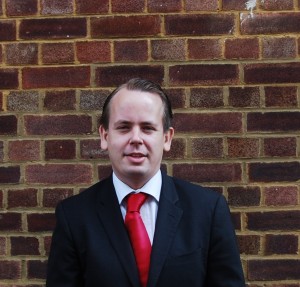 Saturday October 10th 2015 is World Mental Health Day, The focus of the day, promoted by the World Health Organisation, is to raise awareness of mental health issues around the world and mobilize efforts in support of mental health.
Saturday October 10th 2015 is World Mental Health Day, The focus of the day, promoted by the World Health Organisation, is to raise awareness of mental health issues around the world and mobilize efforts in support of mental health.
That could sound very global and distant from local people, so we took the opportunity to speak to Lewisham Councillor and the borough’s Mental Health Champion, Jonathan Slater (pictured) about the day and the local landscape for mental health.
LDC: What is a Mental Health Champion?
Cllr Slater: There are 46 Councillors with the title across the country and their role differs locally but generally it’s about raising awareness of mental health issues in the development of council policies, leading discussions on mental health with NHS organisations in the local area, speaking with schools, businesses and community groups about mental health, linking with mental health service users and voluntary groups locally to understand their needs and concerns and tackling myths and misperceptions about mental health in the local community.
LDC: So how does World Mental Health Day fit into that for you?
Cllr Slater: One in four people around the globe have a mental health issue, so everyone has got a personal experience of friends or relatives who have been affected. What I think is great is that we are finally seeing parity of esteem that mental health issues are beginning to treated as serious medical conditions.
The day also helps highlight the services that there are and how we can all work together locally so people know about them. Lewisham Mental Health Connection for example is a great way to access information and talk about how we can improve.
LDC: What can we do to support those who have multiple needs, say mental as well as physical health issues?
Cllr Slater: We’ve got to improve joining up services, which means giving service users a voice. We had the Lewisham Mental Health Conference just recently and there, someone asked how are we listening to people who have those mental health issues but also have learning disabilities or difficulties? That’s how you find out what the gaps are.
I see LDC playing a very important role to ensure that the voices, not only of those who have physical and/or learning disabilities but also of those with mental health issues are heard. We have to work towards making people feel they are being listened to more, that everything is more personalised around their needs.
LDC Absolutely, thanks for taking the time to talk to us.
Cllr Slater: Thank you.